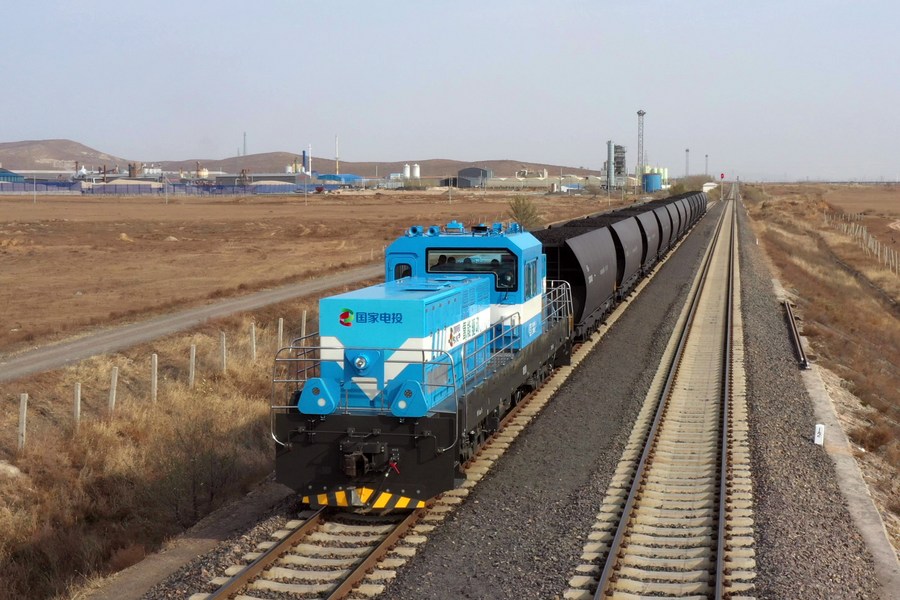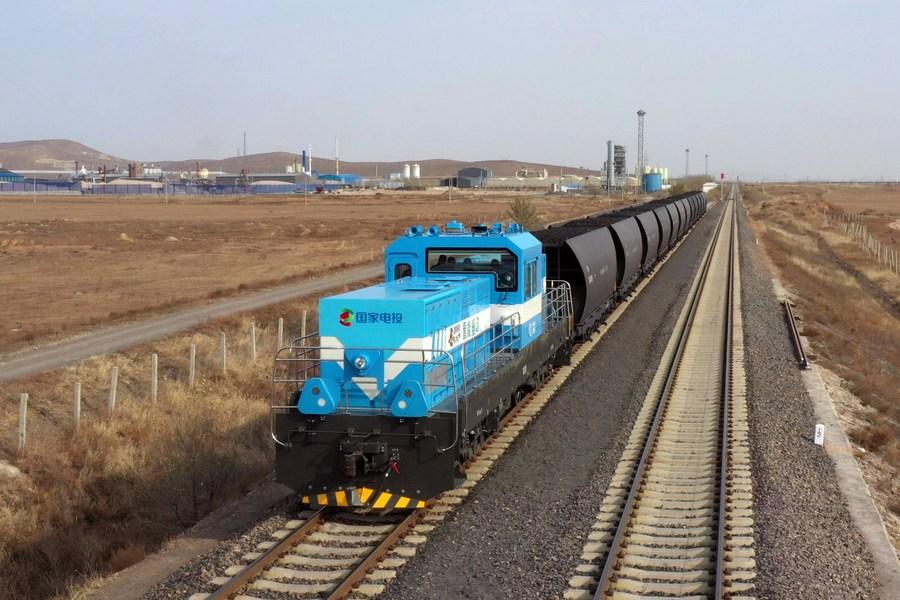
Photo taken on Oct. 29, 2021 shows the first China-developed hydrogen fuel cell hybrid locomotive in a trial run in north China's Inner Mongolia Autonomous Region. (Xinhua)
BEIJING, April 14 (Xinhua) -- China's top economic planner has issued a 15-year plan to develop the hydrogen energy industry, and experts are offering their feedback on the country's green future.
China produced about 33 million tonnes of hydrogen in 2021, making it the world's largest hydrogen producer.
By 2035, the proportion of hydrogen produced from renewable energy will increase significantly, according to the plan jointly released by the National Development and Reform Commission and the National Energy Administration in March.
"China's hydrogen energy industry will be key to the country's carbon peaking and neutrality goals," said Chai Maorong, chief technology officer of the Hydrogen Energy Co., Ltd. under the State Power Investment Corporation.
Due to the flammable and explosive characteristics of hydrogen, China has long paid attention to its hazardous chemical properties, but lacked awareness of its energy properties, said Lyu Jianzhong, deputy director with the research center of China National Petroleum Corporation.
Lyu noted that it is a milestone to define hydrogen as a green and low-carbon secondary energy for the first time.
Hydrogen energy can only be generated by consuming primary energy such as coal, natural gas and renewable energy.
Rao Jianye, vice president of China Electric Power Planning & Engineering Institute, explained that the production process of hydrogen determines the amount of carbon emissions. The production processes are categorized by different colors; gray, blue and green. Among them, the first two types will emit greenhouse gases such as carbon dioxide in the production process, while green hydrogen can achieve true zero carbon emissions.
"Now, fossil fuels account for nearly 80 percent of hydrogen produced in China. The scale of hydrogen production from renewable energy is still small," said Rao, adding that China's hydrogen energy industry is still in the early stage of development.
The China Hydrogen Alliance earlier estimated that the scale of China's hydrogen energy market will reach 43 million tonnes by 2030. Green hydrogen will increase from 1 percent of energy in 2019 to 10 percent, and the market scale will increase nearly 30 times.
Industry insiders believe the industrial development is closely connected to the change from gray hydrogen to green hydrogen.
"A key factor in the low proportion of green hydrogen applications is that the cost of hydrogen production is too high," said Chai, adding that 70 percent of the cost of hydrogen production by electrolysis of water comes from high electricity costs.
The cost of producing green hydrogen is three to four times that of production from fossil fuels. This means the conversion efficiency of renewable resources such as wind, light and water need to be greatly improved throughout the transition process, said Chai.
The main storage and transportation mode of hydrogen energy in China is high-pressure gaseous hydrogen storage, which is suitable for small-scale and short-distance transportation. But it is difficult to realize low-cost and large-scale storage and transportation, said Lin Boqiang, dean of China Institute for Studies in Energy Policy, Xiamen University.
"It is necessary to increase infrastructure construction and investment and promote the layout of long-distance hydrogen transmission pipelines," said Lin.
"Therefore, continued technological innovation is the key to promoting industrial progress," said Chai, stressing the importance of solving technical and cost problems.




 A single purchase
A single purchase









